Good evening!
I'm trying to implement an encrypter using Rijndael algorithm and Rijndael class in c#. I tried to follow (not doing exactly the same code) the link bellow, but the problem is given a string to be encrypted I'm not getting any result. I'm no getting any error message too.
CryptDecrypt.cs
using System;
using System.IO;
using System.Security.Cryptography;
using System.Text;
namespace RijndaelAlgorithm {
public class CryptDecrypt {
private Byte[] iv;
private Byte[] key;
public CryptDecrypt(String key) {
iv = new Byte[] {21, 10, 21, 251, 132, 76, 121, 27, 210, 81, 215, 99, 14, 235, 11, 75};
this.key = Encoding.ASCII.GetBytes(key);
}
public String encryptMsg(String originalMsg) {
byte[] encryptedMsg;
Rijndael rijAlg = Rijndael.Create();
rijAlg.Key = formatKey();
rijAlg.IV = iv;
MemoryStream msEncrypt = new MemoryStream();
ICryptoTransform encryptor = rijAlg.CreateEncryptor(rijAlg.Key, rijAlg.IV);
CryptoStream csEncrypt = new CryptoStream(msEncrypt, encryptor, CryptoStreamMode.Write);
StreamWriter swEncrypt = new StreamWriter(csEncrypt);
swEncrypt.Write(originalMsg);
encryptedMsg = msEncrypt.ToArray();
Console.WriteLine("encryptedMsg.Length: " + encryptedMsg.Length);
return Convert.ToBase64String(encryptedMsg, 0, encryptedMsg.Length);
}
private Byte[] formatKey() {
int len = key.Length;
String strKey = System.Text.Encoding.UTF8.GetString(key);
String fillKey = "";
String strFormatedKey = "";
Byte[] formatedKeyByte;
if (len < 16)
fillKey = new String('X',(16 - len));
strFormatedKey = String.Concat(strKey, fillKey);
formatedKeyByte = Encoding.ASCII.GetBytes(strFormatedKey);
return formatedKeyByte;
}
}
}
Menu.cs
using System;
namespace RijndaelAlgorithm {
public class Menu {
private CryptDecrypt r;
public Menu() {
r = new CryptDecrypt("123654");
}
public void showMenu() {
Console.WriteLine("the encrypted message is: " + r.encryptMsg("isjustatest"));
}
}
}
